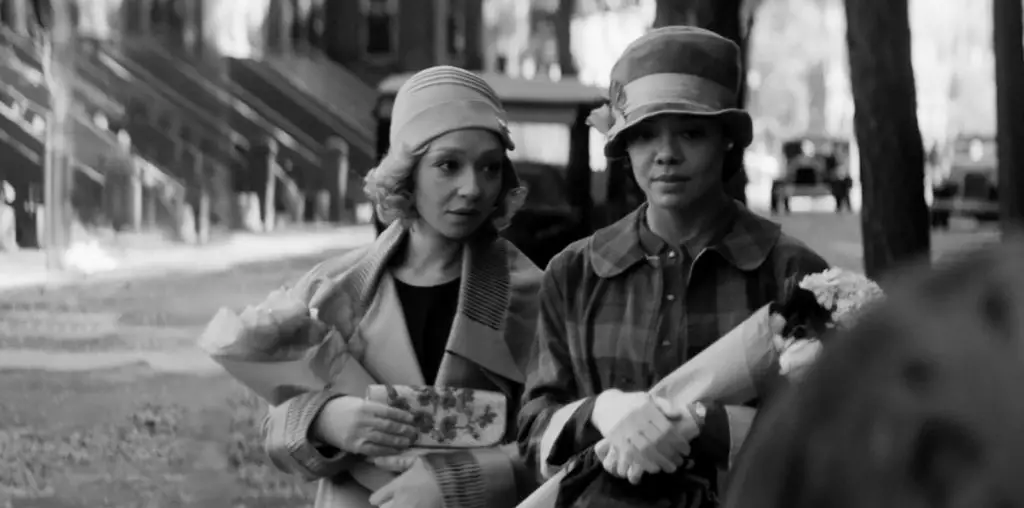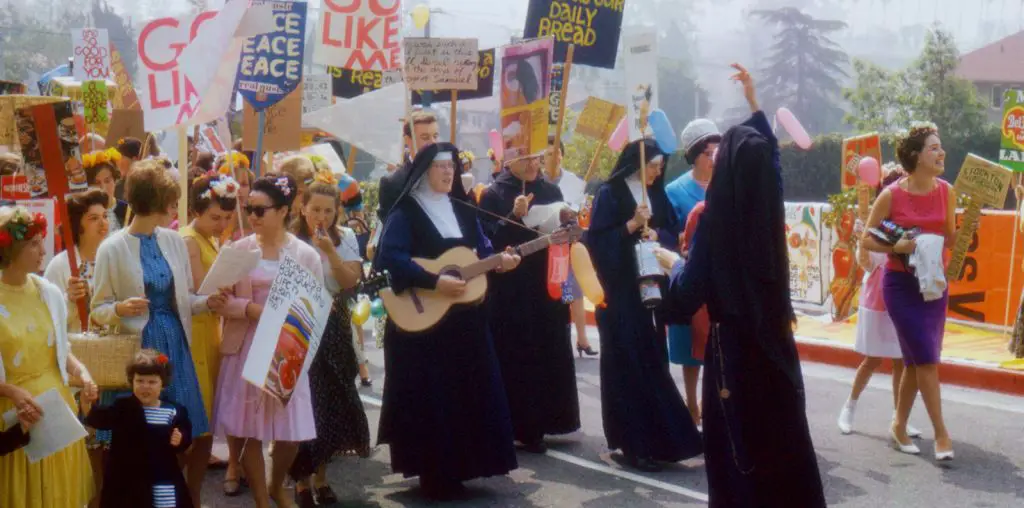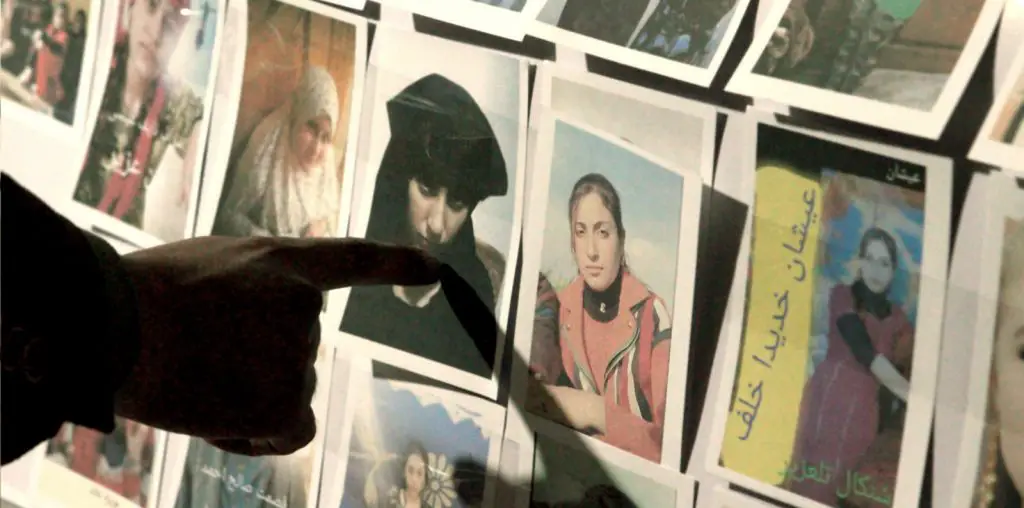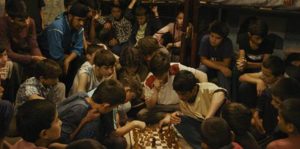
NEW TO AMAZON PRIME! Here’s something you don’t see every day: a searing Danish-Afghan drama, helmed by a female Afghan auteur, about what it was like growing up in Soviet-occupied Kabul. The Orphanage marks writer/director Shahrbanoo Sadat’s second chapter in a planned pentalogy based on the unpublished diaries of Anwar Hashimi (who plays a central role in the film), after her feature debut Wolf and Sheep won the Art Cinema Award at the 2016 Cannes Film Festival. A poignant coming-of-age story that confidently toys with magical realism, The Orphanage firmly establishes Sadat as a prodigious filmmaker.
The year is 1989. 15-year-old Qodrat (Quodratollah Qadiri) lives on the sun-drenched streets of Kabul, scalping movie tickets and selling key rings. He’s soon nabbed by the authorities and taken to a so-called orphanage, a Soviet-operated state facility, where he meets fellow street urchins Masihullah (Masihullah Feraji) and Fayaz (Ahmad Fayaz Osmani). The boys are provided with shelter, food, and clothes. As political turmoil steadily approaches, another sort of turbulence – that of raging hormones, resentment, loss, and love – rages within the confines of the orphanage.
There is no clear protagonist in The Orphanage. Sadat follows the plight of several characters with the elegance of a seasoned filmmaker. Fayaz gets bullied by his roommates, with Eshan (Eshanullah Kharoti), the self-proclaimed leader, announcing, “I am the room master. You have to ask me for eating, drinking, going to the toilet, and anything else you do. If you don’t, I’ll break your teeth.” The film then invites us to witness a glimpse of Eshan’s bitter perspective. We also track the tragic trajectory of Anwar (Hashimi), the orphanage’s supervisor and a surrogate father to the boys and girls that live there, who eventually comes to face the inevitable. In the meantime, Qodrat falls for a girl in his class and escapes to a wondrous fantasyland, composed of heightened reflections of reality.
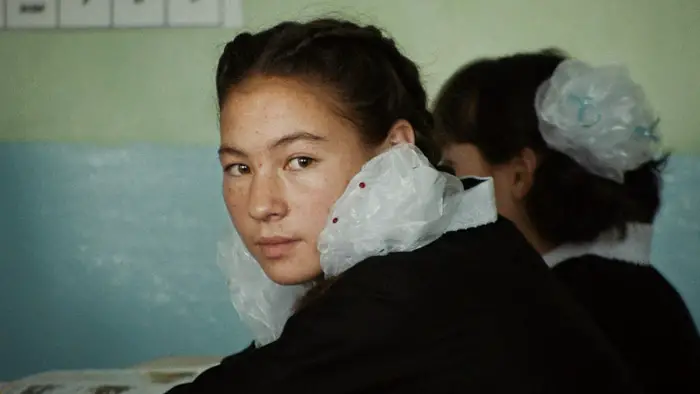
“…Qodrat falls for a girl in his class and escapes to a wondrous fantasyland…”
An extended trip to Moscow sees the kids don pioneer uniforms, visit Lenin’s mausoleum, and play chess. Upon their return, they find Fayaz chained in a dank hospital room. Things go downhill from there: a tragic casualty is followed by the arrival of the militant Mujahideen, taking over after the Soviets withdraw. The florid finale, seen through the Bollywood prism of Qodrat’s fantasies, is a bold move by Sadat, but she pulls it off – upon reflection, this was the only way to end this story.
The episodic, documentary-like approach complements the narrative, miraculously gelling well with the more outlandish stylistic elements. We’re right there, with Qodrat and his friends, as they raid a toppled Russian tank, its contents still fresh with blood, steal apples from a ferocious gardener’s orchard, or simply talk about girls. The director clearly has a nostalgic affection for this period. She immerses us into the experience of watching a Bollywood movie in the theater, with the audience cheering and clapping along. She portrays the orphanage’s milieu with exquisite detail. Kids eat quietly in the cafeteria, the clinking and clanking of silverware almost overwhelming against their silence. But then she shows a group of friends splashing in the sun-kissed river, and just like that, the mood shifts, and things become ethereal. The filmmaker makes it look easy.
Slyly, utilizing vibrant colors, naturalistic acting, a healthy dose of eccentricity, and what sounds like partially-improvised dialogue, Sadat lures us into a world where things like sex, war, adults, and death seem like abstract concepts – titillating, sure, but abstract nonetheless – until there’s no choice but to face the grim reality. The Orphanage is never overtly political, carefully avoiding demonizing any side of the conflict. Hopefully, Sadat is paving the way for other underrepresented filmmakers to share their fascinating stories. For now, I can’t wait to see the third chapter of her epic visual odyssey.
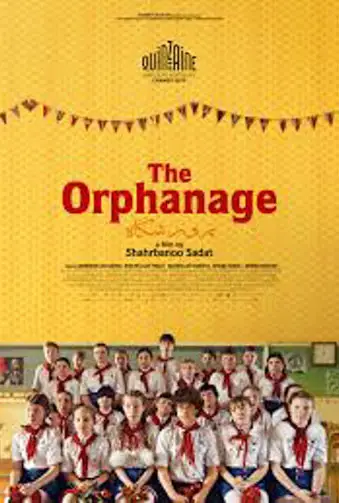
"…portrays the orphanage's milieu with exquisite detail."
